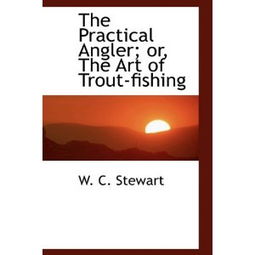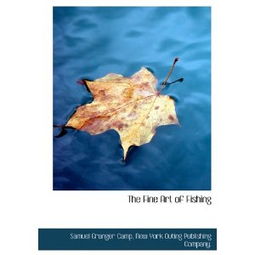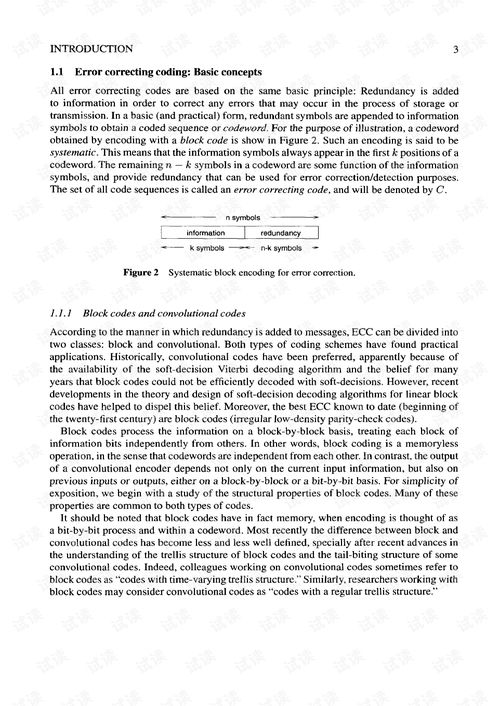Content:
Fishing is an enjoyable pastime that offers relaxation, tranquility, and the thrill of the catch. However, for beginners, the journey to mastering the art of fishing can be daunting. With the right approach and some essential tips, you can quickly improve your fishing skills and make your experience on the water more rewarding. Here's a comprehensive guide on how to enhance your beginner fishing techniques.
Understand the Basics
Before you can improve your fishing skills, it's crucial to have a solid understanding of the basics. Here are some fundamental concepts to grasp:
- Types of Fishing: Familiarize yourself with the different types of fishing, such as freshwater, saltwater, fly fishing, and ice fishing. Each type requires specific techniques and equipment.
- Fishing Knots: Learn how to tie basic fishing knots, such as the Palomar, clinch, and improved clinch knots. These knots are essential for securing your lure or bait to the line.
- Fish Species: Study the habits and preferences of the fish species you plan to target. This knowledge will help you choose the right bait, lure, and technique.
- Weather and Water Conditions: Understand how weather and water conditions can affect fish behavior. For instance, fish are often more active during certain times of the day or in specific water temperatures.
Invest in the Right Equipment
The right equipment can significantly impact your fishing success. Here's what you need to get started:
- Rod and Reel: Choose a rod and reel that match the type of fishing you plan to do. For beginners, a medium-action rod with a spinning reel is a good all-around choice.
- Line: Select the appropriate line for your fishing environment. Monofilament, fluorocarbon, and braided lines each have their advantages and are suitable for different fishing scenarios.
- Hooks and Lures: Purchase a variety of hooks and lures that cater to the fish species you're targeting. Start with simple, durable options that are easy to use.
- Bait: Depending on your fishing style, you may need live bait, artificial lures, or both. Learn how to rig your bait properly to increase your chances of catching fish.
Practice Casting and Reeling Techniques
Casting and reeling are fundamental skills that require practice. Here are some tips to improve your technique:
- Casting: Start by practicing in an open area, such as a park or beach. Focus on casting in a straight line and at different distances. Gradually increase the distance as you become more comfortable.
- Reeling: Learn how to reel in smoothly and efficiently. Practice reeling at various speeds and with different types of lures to get a feel for the resistance and how to handle it.
- Combining Casting and Reeling: Practice casting and reeling simultaneously to develop a smooth, coordinated motion.
Learn to Read the Water
Understanding water conditions is key to successful fishing. Here are some tips to help you read the water:
- Observe the Surface: Look for disturbances on the water's surface, such as splashes or bubbles, which can indicate fish activity.
- Study the Bottom: Pay attention to the bottom structure, as it can affect fish behavior. Areas with rocks, weeds, or fallen trees often hold fish.
- Use a Fish Finder: A fish finder can help you locate fish in the water. Familiarize yourself with its features and how to interpret the information it provides.
Develop a Patient Approach
Fishing is a patience game. Here's how to develop a patient approach:
- Set Realistic Expectations: Understand that fishing is a process, and catching fish may not always be immediate. Set realistic goals and enjoy the experience.
- Stay Focused: Avoid distractions and maintain a focused mindset. This will help you be more alert to the subtle signs of fish activity.
- Be Observant: Pay attention to your surroundings and the behavior of the fish. This will help you adapt your techniques and increase your chances of success.
Seek Guidance from Experienced Anglers

Learning from others is a valuable way to improve your fishing skills. Here's how to seek guidance:
- Join a Fishing Club: Local fishing clubs often offer workshops, seminars, and guided fishing trips. These can be excellent opportunities to learn from experienced anglers.
- Ask for Advice: Don't hesitate to ask for advice from more experienced anglers. They can provide valuable insights and tips based on their own experiences.
- Watch Fishing Tutorials: Online resources, such as YouTube, offer a wealth of fishing tutorials and tips. Watching these can help you learn new techniques and improve your skills.
By following these tips and dedicating time to practice, you'll be well on your way to becoming a skilled angler. Remember that fishing is a lifelong learning experience, and each trip to the water offers new opportunities to refine your techniques and enjoy the beauty of the outdoors. Happy fishing!












